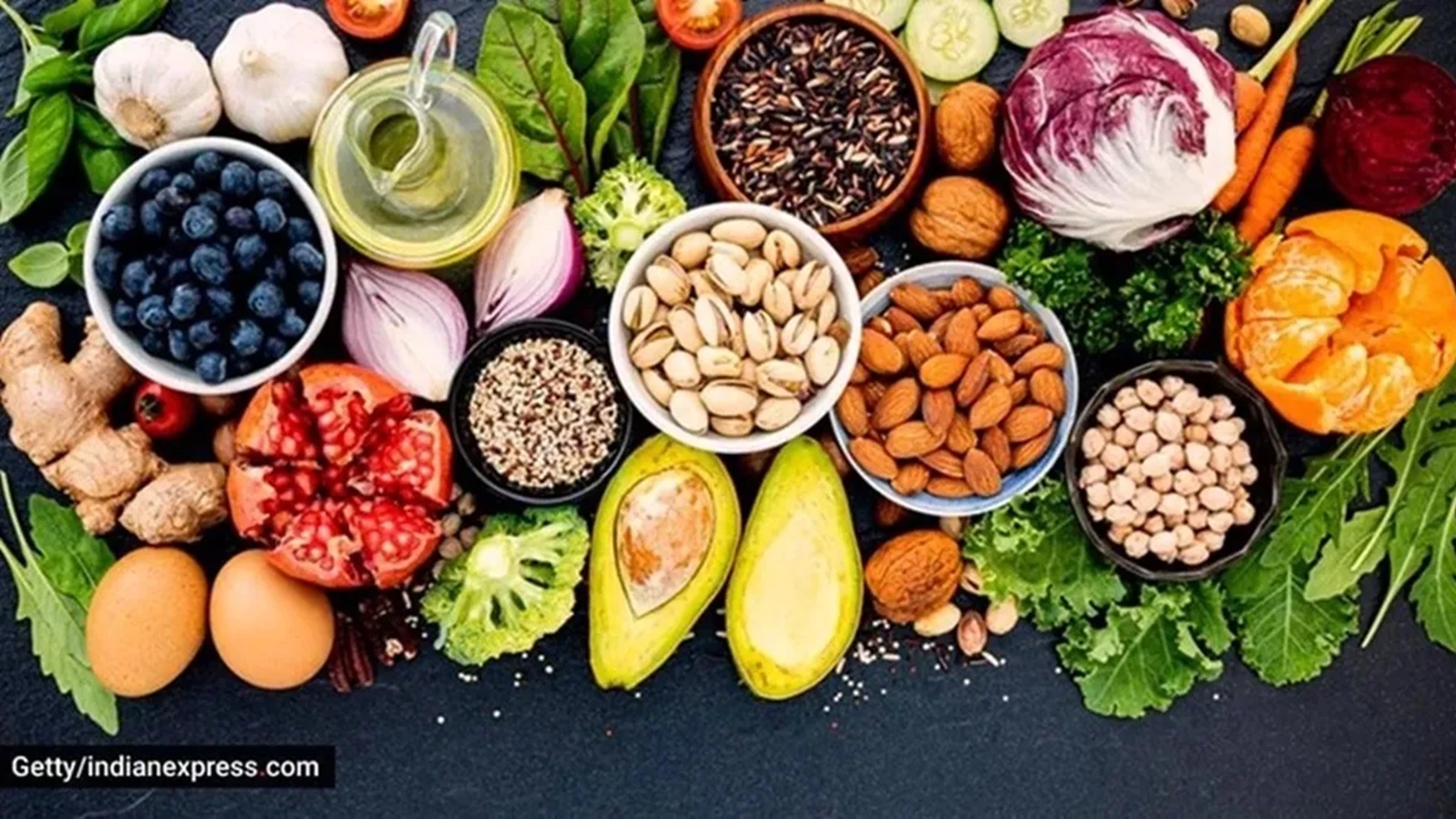The ultimate vitamin cheat sheet: Top foods packed with vitamins A to K for better health | Food-wine News
Vitamins are essential to our health and well-being. Rather than relying on supplements, health experts often recommend obtaining these vital nutrients through food.
Clinical nutritionist Vedanti Dave explained that “vitamins are a group of substances that cannot be synthesised in the body and need to be supplied from external sources, such as food.” However, she added that “some vitamins, like K and B, are synthesised by intestinal bacteria.”
Dave guided us through the health benefits of various vitamins and the food sources rich in them.
Vitamin A
Vitamin A plays a crucial role in optimal vision, particularly in dim light, as well as in growth and development. A deficiency can make the body more susceptible to infections and can cause nutritional blindness, increased infections, and spontaneous pre-term delivery in women. Sources of Vitamin A include eggs, spirulina (blue-green algae), carrots, colocasia, coriander leaves, and spinach.
Vitamin B Complex
Vitamin B1 (Thiamine): Thiamine is essential for neuromotor coordination via its role in nerve conduction and energy production. Known as the “morale vitamin,” a deficiency can lead to mental depression, confusion, and reduced muscle strength. Pork, whole grains, and legumes are the richest sources.
Vitamin B2 (Riboflavin): Riboflavin promotes antioxidant activity and cell repair. A deficiency can result in mouth sores, skin lesions, and slower muscle response. Dairy, eggs, and almonds are the best sources.
Vitamin B3 (Niacin): Niacin helps prevent pellagra, which manifests as diarrhoea, dermatitis, and dementia. Groundnuts and meat are rich sources.
Vitamin B5 (Pantothenic Acid): This vitamin is vital for hormone and cholesterol production. While deficiencies are rare, they can affect the nervous system. Liver, kidneys, egg yolks, and milk are good sources.
Vitamin B6 (Pyridoxine): B6 enables red blood cell production and supports cognitive development. Deficiencies may lead to anaemia, sleep disturbances, and irritability. The richest sources include meat, fish, and poultry.
Vitamin B7 (Biotin): Biotin supports healthy skin, hair, and nails. Deficiency symptoms include depression, hallucinations, and muscle pain. Egg yolks and soya beans are the best sources.
Vitamin B9 (Folic Acid): Folic acid is crucial for DNA synthesis, particularly during pregnancy, as it helps prevent neural tube defects in the developing baby. A deficiency can lead to weight loss, weakness, and anorexia. Pulses, eggs, and leafy greens are rich in folate.
Vitamin B12 (Cobalamin): B12 is important for neurological function and red blood cell formation. A deficiency can cause enlarged, immature blood cells. It is mainly found in animal products and fermented foods.

Vitamin C
Vitamin C functions as an antioxidant, aids in iron absorption, and helps prevent cataracts. A deficiency can cause bleeding gums, brittle bones, and delayed wound healing. Amla is one of the richest sources of Vitamin C.
Vitamin D
Essential for bone formation and maintenance, a lack of Vitamin D can cause softening of bones (osteomalacia) in both children and adults. Marine fish, butter, and egg yolks are rich sources of this vitamin.
Vitamin E
Vitamin E acts as a powerful antioxidant. A deficiency may result in uncoordinated movements and weakness. The best sources include vegetable oils (such as rice bran oil), nuts, and pulses.
Vitamin K
Vitamin K plays a vital role in blood clotting. A deficiency can increase the risk of haemorrhage. Dark green leafy vegetables and alfalfa sprouts are excellent sources of Vitamin K.
No Byline Policy
Editorial Guidelines
Corrections Policy
Source
